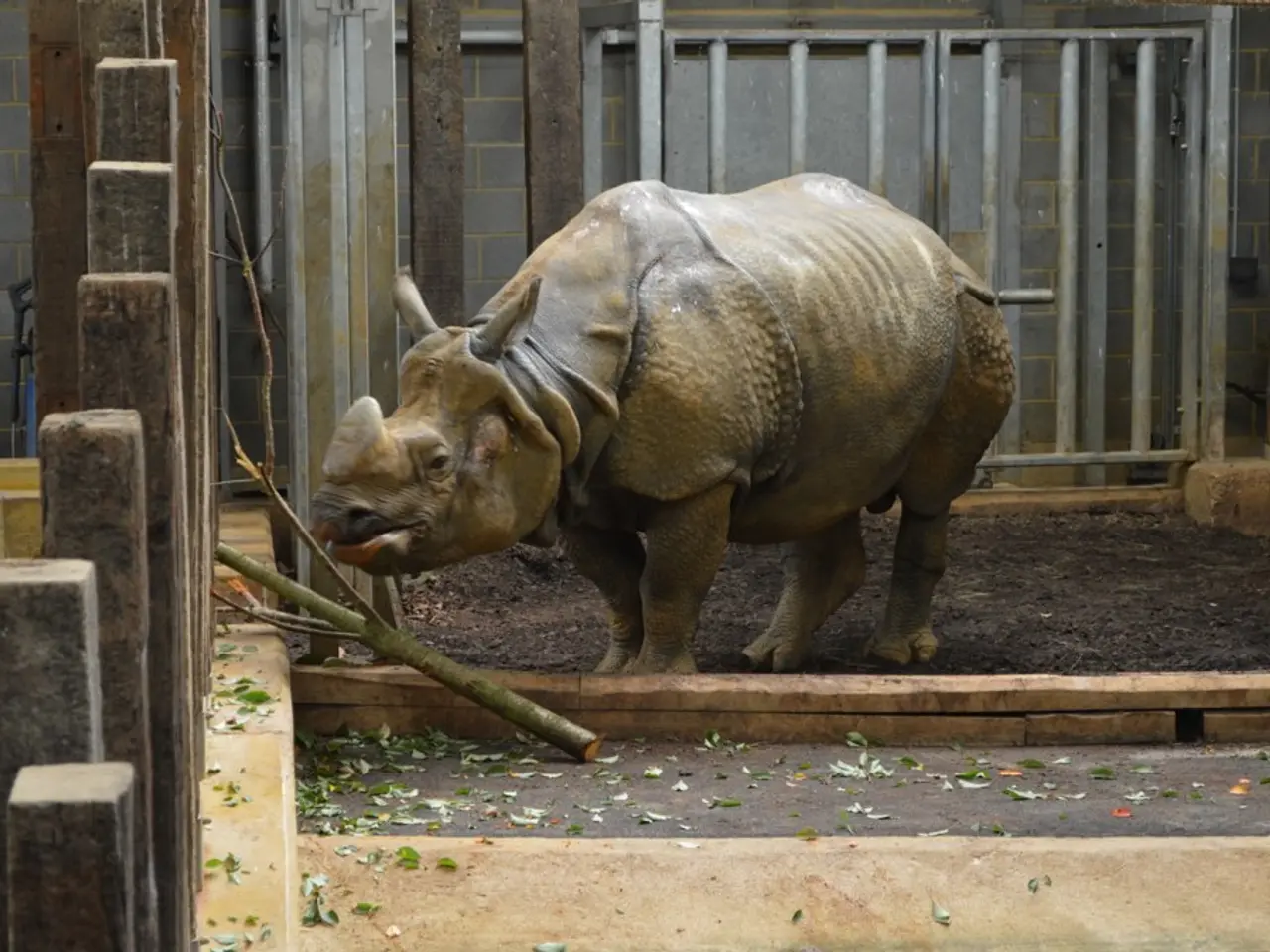Rhinos equipped with radioactive horns intended to deter illicit hunting activities in the nuclear defense context
The University of the Witwatersrand in South Africa is spearheading an innovative initiative called the Rhisotope Project, aiming to combat rhino poaching across the nation. This project, backed by private wildlife reserve owners and national conservation authorities, seeks a large-scale rollout to protect South Africa's rhino population [1][2].
The goal of the Rhisotope Project is to render rhino horn smuggling so risky and unprofitable that it becomes an unattractive proposition for poachers [3]. The method involves injecting rhinos with harmless isotopes, making their horns detectable by radiation scanners at borders and ports worldwide [4].
This promising approach has already shown success in a pilot study conducted last year, where around 20 rhinos were injected with radioactive material at a sanctuary. Researchers found that the isotope-tagged horns could be detected even when sealed inside 40-foot shipping containers, a common method used by traffickers to smuggle wildlife products [5].
The Rhisotope Project is a collaborative effort involving the University of the Witwatersrand, nuclear energy authorities, and conservationists. The project has treated dozens of rhinos with low levels of radioactive material that embed into the horn, posing no harm to the animals and causing no disruption to their behaviour [1][2][3][5].
While the Rhisotope Project is not a panacea for poaching, researchers believe it will serve as a strong deterrent to traffickers. Its advantage over other anti-poaching methods like dehorning is that it is less disruptive to rhinos and preserves their natural state while enabling nuclear security infrastructure to intercept illegal shipments [1][2][3].
The Rhisotope Project comes at a critical juncture for rhino conservation, as the global rhino population has plummeted to just 27,000, largely due to illegal poaching and the black-market trade in rhino horns [6]. In South Africa, home to the largest population of rhinos, estimated at 16,000, poaching remains a significant issue, with approximately 500 rhinos killed each year for their horns [6].
Private and public rhino custodians have been urged to approach the university if they want their animals protected under the Rhisotope initiative [6]. With the project showing promise in its early stages, the hope is that it will provide an edge in the fight against rhino poaching and help safeguard these majestic creatures for future generations.
[1] https://www.reuters.com/business/healthcare-pharmaceuticals/south-africas-witwatersrand-university-launches-rhisotope-project-tag-rhino-horns-2021-08-19/ [2] https://www.iaea.org/newscenter/news/south-africa-launches-pilot-project-to-tag-rhino-horns-with-radioisotopes [3] https://www.bbc.com/news/science-environment-58197631 [4] https://www.nature.com/articles/s41598-021-93180-z [5] https://www.nature.com/articles/s41598-021-93180-z [6] https://www.iucnredlist.org/species/35334/19934281
- The University of the Witwatersrand's Rhisotope Project, a collaboration with nuclear energy authorities and conservationists, aims to utilize science and innovation to combat rhino poaching by making rhino horns detectable through radiation scanners.
- Aerospace and environmental-science communities might find interest in the Rhisotope Project, as its potential impact on combating wildlife trafficking could have far-reaching implications for health-and-wellness, fitness-and-exercise, and climate-change initiatives.
- Nutrition and supplements industry could support the Rhisotope Project, recognizing its importance in preserving the rhino population, a crucial part of Africa's biodiversity, which in turn supports overall ecosystem health and sustainability.
- With the Rhisotope Project using harmless isotopes, it opens up possibilities for collaboration with scientific communities working on other large-scale projects, such as environmental monitoring, wildlife tracking, and material tracing technology.
- The Rhisotope Project, by reducing the profitability of rhino poaching, could incentivize the development of ethical products derived from rhino horn alternatives, promoting a more responsible and sustainable approach to health, fitness, and wellness.




